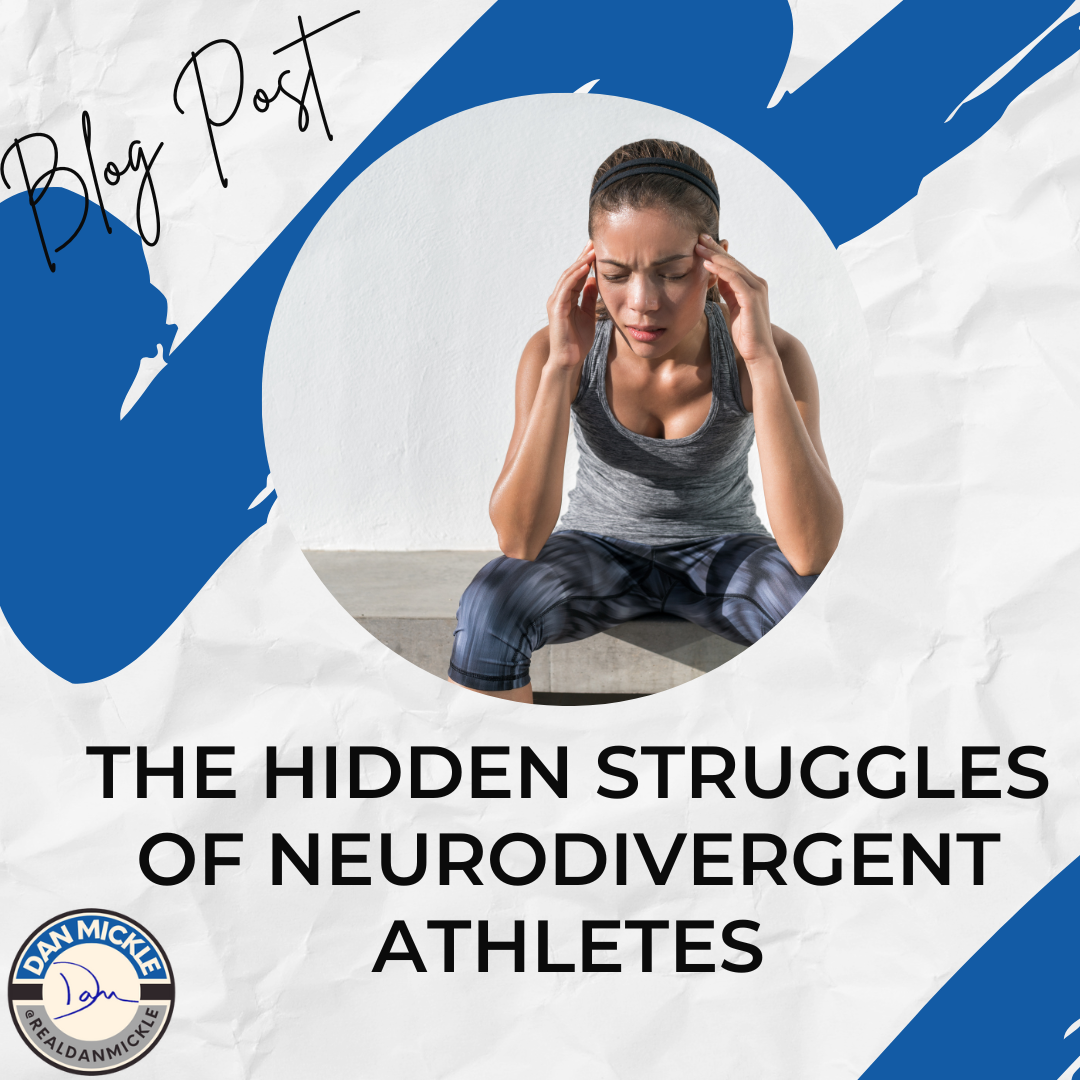As coaches, we pride ourselves on being able to read our athletes. We see when they’re tired, when they’re frustrated, when they need encouragement, and when they need a good old-fashioned push. But for neurodivergent athletes, some of their biggest struggles aren’t as visible. And that’s where we, as coaches, might be missing the mark.
Neurodivergence isn’t just a trendy buzzword—it’s a reality for many young athletes. It encompasses a range of conditions like ADHD, autism, dyslexia, dyspraxia, and more. The problem? These athletes often face obstacles that aren’t immediately obvious to the untrained eye, which means their struggles can be mistaken for laziness, defiance, or lack of effort. That’s not just frustrating for the athlete; it’s an absolute coaching failure.
Let’s talk about some of the hidden struggles neurodivergent athletes face and what we, as coaches, can do about it.
The Overload You Don’t See
A neurodivergent athlete might look fine on the surface but could be battling sensory overload. The bright gym lights, the constant whistle-blowing, the feeling of a scratchy uniform—it can all pile up and lead to shutdown or meltdown. And guess what? Most kids won’t tell you that’s the problem. Instead, they might disengage, act out, or completely check out.
Coach’s Move: Learn the triggers. If an athlete seems “off,” don’t assume attitude—ask questions. Small changes, like offering sunglasses for bright lights or noise-canceling headphones during chaotic moments, can make a world of difference.
The Processing Gap
Ever feel like you give clear instructions, but an athlete just isn’t following through? It’s easy to chalk that up to a lack of focus, but for some neurodivergent athletes, it’s a processing issue. They might need more time to absorb information, or they might need instructions broken down into smaller steps.
Coach’s Move: Give instructions in multiple ways—verbal, visual, and, when possible, physical demonstration. And most importantly, give them time. If you’re rapid-firing commands and getting frustrated that they’re not sinking in, that’s on you, not them.
The Social Struggle
Team sports are a social jungle, and for neurodivergent athletes, navigating that can be exhausting. Reading social cues, understanding unspoken rules, or even handling casual banter can be a challenge. And if they misread a situation? They might shut down or lash out, making them an easy target for teammates who don’t understand what’s really going on.
Coach’s Move: Foster a culture of inclusion. Take time to educate your team about different communication styles. Encourage direct and clear communication between players rather than relying on unspoken expectations. And for the love of all things sports, shut down bullying and exclusion immediately.
The “Lazy” Label That’s Anything But
One of the biggest mistakes a coach can make is assuming a neurodivergent athlete isn’t trying just because they seem disengaged. Some neurodivergent athletes struggle with executive function, meaning tasks like organizing, planning, and initiating action can feel nearly impossible. It’s not that they don’t want to do it—it’s that their brain isn’t making it easy.
Coach’s Move: Instead of labeling an athlete as unmotivated, find out what’s getting in the way. Provide structured routines, clear expectations, and gentle prompts to help them get started. And recognize that their best effort might not always look the way you expect it to.
The Emotional Rollercoaster
Neurodivergent athletes often experience emotions in a more intense way than their neurotypical peers. What seems like a minor setback can feel like the end of the world. If a coach doesn’t understand this, they might dismiss an athlete’s reaction as “dramatic” or “over-the-top.”
Coach’s Move: Validate emotions. Instead of saying, “Calm down” or “It’s not a big deal,” acknowledge their feelings: “I see that you’re really frustrated—let’s take a breath and figure this out.” Teach emotional regulation strategies just as you would teach a skill drill.
The Burnout That Sneaks Up
Many neurodivergent athletes are masters of masking—that is, pretending to be fine while internally struggling. They push themselves to fit in, to keep up, to meet expectations that weren’t designed with them in mind. And then, seemingly out of nowhere, they burn out. They stop showing up. They lose interest. And coaches are left scratching their heads, wondering what happened.
Coach’s Move: Pay attention to early signs of burnout—decreased engagement, increased frustration, avoidance. Build in rest periods and check-ins. Ask how they’re feeling about practice, competition, and their role on the team. And most importantly, let them know that they don’t have to perform at 100% every single day to be valued.
Wrapping It Up
The best coaches don’t just coach the sport—they coach the individual. Neurodivergent athletes bring incredible strengths to their teams, but their struggles are often misunderstood or overlooked. By taking the time to understand and accommodate these hidden challenges, we’re not just helping them succeed in sport—we’re setting them up for success in life.
So, the next time you catch yourself frustrated with an athlete who isn’t “getting it” or who seems disengaged, take a step back and ask yourself: What might I be missing? Because great coaching isn’t about making every athlete fit into one mold—it’s about meeting them where they are and helping them grow from there.


